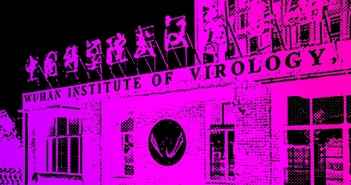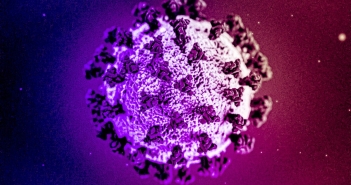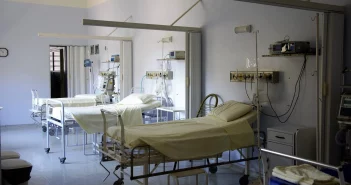I am a father, a husband, a son, a friend, a doctor, an athlete, a traveller, a student and a citizen. Although just one person, I nonetheless occupy many nodes in the complex networks that make up society. These extend into the past, traverse the present and reach towards the future.
Over the past few months I have been deprived or diminished in many of these roles. Had I been asked if I wanted to relinquish the responsibilities inherent to these roles I would have declined, but I may have wanted to increase my responsibilities in some areas.
I am just one person in a vast network of people whose lives have contracted in the past six months. This makes me consider the extent of the wastage across society.
Why? Policies were adopted by an unelected government on the erroneous advice of experts listening to other experts, who predicted an enormous death toll from Covid-19 that has not come about anywhere on the globe. These same experts are now doubling down on initial errors and inflicting incalculable harm on the delicate fabric of society.
I don’t think these experts took into account people like a patient of mine, eighty-five-year-old Joe, who was married to Mary for sixty-years. They were forced to separate, partly because of her dementia when she had to go into a care home, but then because of public health restrictions. Mary resides in a nursing home and Joe visits every day, but the last time he held her hand was on their sixtieth wedding anniversary in March.
Previously Joe would cry when recounting his visits to Mary. Then he realised that if he spoke to her about their early days he could bring her back to life; at least for an hour or two. This stanched his tears. He was happy to have a small piece of the woman he married return to him.
His last such conversation was in March. Until recently he was still visiting her and looking and waving at a woman who didn’t recognise him. If the day was bright and sunny all he’d see was his reflection in the window. Joe managed to see Mary this week; to hold her hand and speak to her, but unfortunately she was unconscious. She stayed that way until she died a few days later.
The experts never asked Joe how he and Mary would like to live out their last days, nor sought the opinion of the thousands of elderly people whose children live abroad and who had planned perhaps their last trips to a wedding, a graduation or a funeral. Instead a paternalistic decision was taken, after a shameless use of the national media for propaganda purposes, inculcating a fear of imminent death in the elderly if they did not comply with the rules.
Yes Covid-19 is a very dangerous illness for an elderly person, with a mortality rate of perhaps ten percent for over seventies, but at a certain point people should be allowed to make informed choices about how they want to spend their last days.
The past is being separated from the present and the future, as grandchildren now avoid grandparents for fear of being harbingers of contagion and death.
Perhaps most egregious of all is the passing away of a generation deprived of family and friends in the final moments of life. No last words of forgiveness, reconciliation, gratitude or love can be expressed. Such pronouncements on death beds have always nourished the generations to come.
As a people we traditionally celebrate death in a very communal way. We wake our dead. We toast their memory. We keep them alive in stories. We form processions to accompany their coffins to the church and the graveyard, where we huddle against wind and rain to say our final goodbyes. Then we gather for soup and sandwiches as a family, making sure to thank all those who have remembered. How dare they take this away from people indefinitely.
Our bonds are being ripped asunder. Our young in schools are now sitting in alienating environments, their every move regimented.
For anyone in university, the experience of academia will not be much better than watching a documentary on YouTube. The vital experiences of college life that sustain us for a lifetime are rarely found in books, but are the product of societies, sporting events and the parties that bring lasting bonds of friendship. These are all human connections that come about through proximity and touch.
What of this year’s Leaving Cert cohort? Students have been deprived of completing their fourteen years of school in a way so many generations before them have done. They are deprived of rites of passage that include the exams themselves, the celebration of results, and then on to the debs. Little wonder nearly 50% of the class of 2020 have reported high levels of depression or anxiety.
And what of the many small businesses, run by the parents of those young people that have been told to pull down their shutters? Who are these people that have the right to tell someone to cease trading and potentially permanently damage sources of livelihoods, and the future prosperity of their families?
Severing social threads by ending sporting activities, indefinitely shutting pubs and restaurants and restricting travel has already taken many formative experiences away from young people, while future encounters may well be tainted indefinitely by a fear of contagion.
And as to the future, are we supposed to believe the oxymoronic slogan of staying together by staying apart. How can this fortify social bonds?
They have instilled fear and paranoia where once there was social capital, infantilising the population with lockdowns.
This is a population that had grown restive about injustices and was developing a growing awareness and intolerance of homelessness, poverty, inequality, sexism, environmental damage and racism. Now the only of most politicians seems to be to keep their jobs, while maintaining social distancing, wearing face masks and eschewing all forms of human contact and connectivity.
To what end? To protect the vulnerable or the health service? The hypocrisy of this is astounding. Since when has an Irish government dramatically altered our society in such a short space of time to protect the vulnerable, or our health service?
Why can’t they admit they got it wrong – that they over-reacted and panicked when the initial grossly erroneous estimates were published? Instead they continue in the same vein. Isn’t it clear by now that the damage that has been caused, and will be caused, is far greater than any perceived health crisis.
Perhaps buried within their spuriously scientific reasoning is the fact that politically this crisis was fortuitous. It came at a time when the electorate had rejected the current government, and become radicalised and deserved a second election, but where are the opposition now?
They should end these arbitrary rules, lockdowns, based on specious and selective use of science purveyed by celebrity scientists. They should listen to international experts and use international data to inform decisions and stop preventing people, young and old, from leading meaningful lives.




